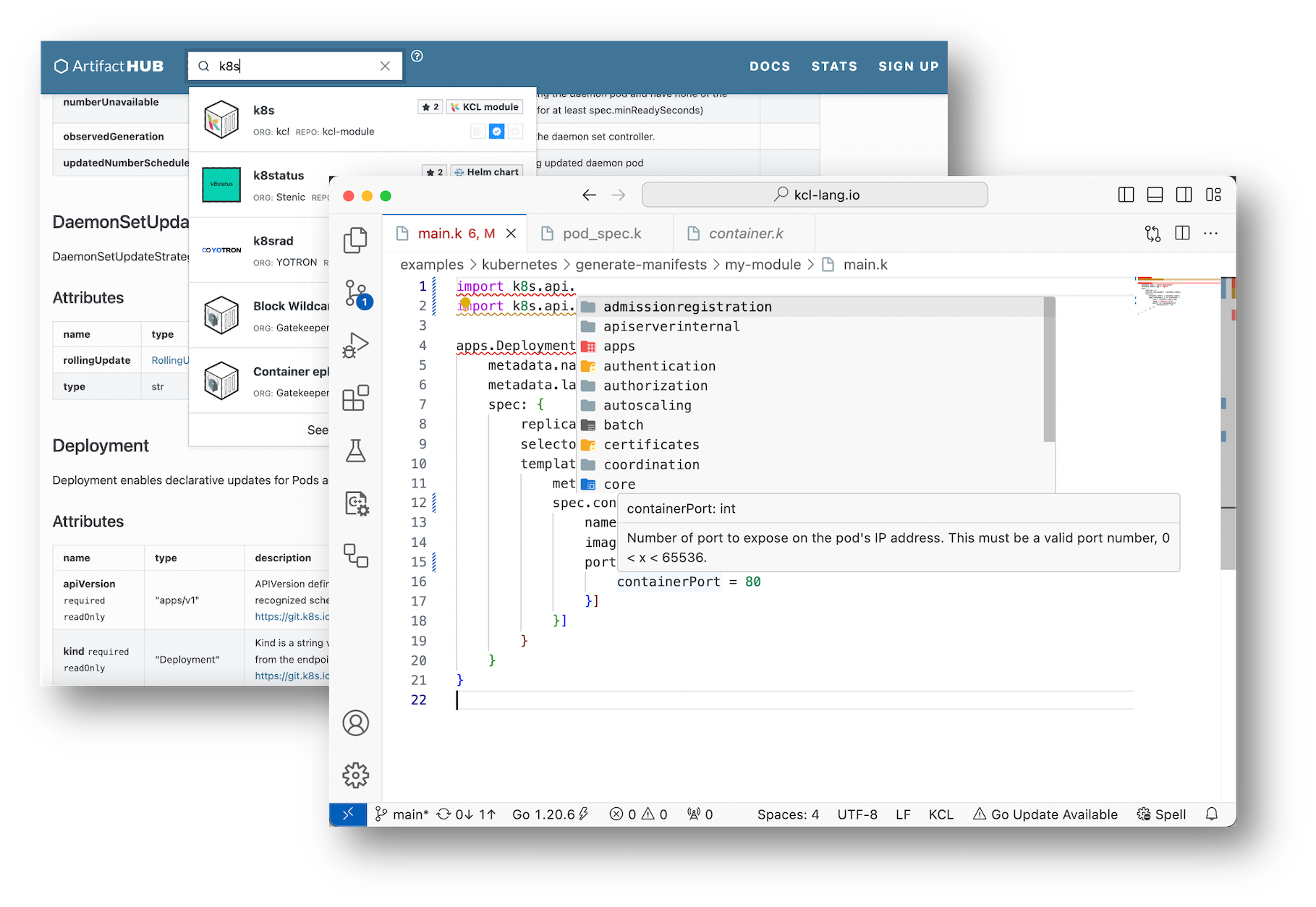Introduction | Features | What is it for | Installation | Documentation | Contributing | Roadmap
KCL is an open-source, constraint-based record and functional language that enhances the writing of complex configurations, including those for cloud-native scenarios. With its advanced programming language technology and practices, KCL is dedicated to promoting better modularity, scalability, and stability for configurations. It enables simpler logic writing and offers ease of automation APIs and integration with homegrown systems.
You can use KCL to
- Generate low-level static configuration data such as JSON, YAML, etc., or integrate with existing data.
- Reduce boilerplate in configuration data with the schema modeling.
- Define schemas with rule constraints for configuration data and validate them automatically.
- Organize, simplify, unify and manage large configurations without side effects through gradient automation schemes and GitOps.
- Manage large configurations in a scalable way for different environments with isolated configuration blocks.
- Mutating or validating Kubernetes resources with cloud-native configuration tool plugins.
- Used as a platform engineering programming language to deliver modern applications with KusionStack.
- Easy-to-use: Originated from high-level languages such as Python and Golang, incorporating functional language features with low side effects.
- Well-designed: Independent spec-driven syntax, semantics, runtime and system modules design.
- Quick modeling: Out-of-the-box modules and Schema-centric configuration types and modular abstraction.
- Rich capabilities: Configuration with type, logic and policy based on Config, Schema, Lambda, Rule.
- Stability: Configuration stability is achieved through a static type system, constraints, and rules.
- Scalability: High scalability is assured with an automatic merge mechanism of isolated config blocks.
- Fast automation: Gradient automation scheme of CRUD APIs, multilingual SDKs, and language plugin
- High performance: High compile-time and runtime performance using Rust & C and LLVM, and support compilation to native code and WASM.
- API affinity: Native support for ecological API specifications such as OpenAPI, Kubernetes CRD, Kubernetes Resource Model (KRM) spec.
- Developer-friendly: Friendly development experiences with rich language tools (Format, Lint, Test, Vet, Doc, package management tools etc.), and multiple IDE extensions.
- Safety & maintainable: Domain-oriented, no system-level functions such as native threads and IO, low noise and security risk, easy maintenance and governance.
- Rich multi-language SDK: Rust, Go, Python, .NET, Java and Node.js SDKs meet different scenarios and application use prelude.
- Integrations: Abstract, mutate and validate manifests through Kubectl KCL Plugin, Kustomize KCL Plugin, Helm KCL Plugin, KPT KCL SDK or Crossplane KCL Function.
- Production-ready: Widely used in production practices of platform engineering and automation at Ant Group.
A detailed feature and scenario comparison is here.
For more information about installation, please check the Installation Guide on the KCL official website.
Detailed documentation is available at KCL Website
See Developing Guide. You can also get started by opening the project in GitHub Codespaces.
See KCL Roadmap.
See the community for ways to join us.




